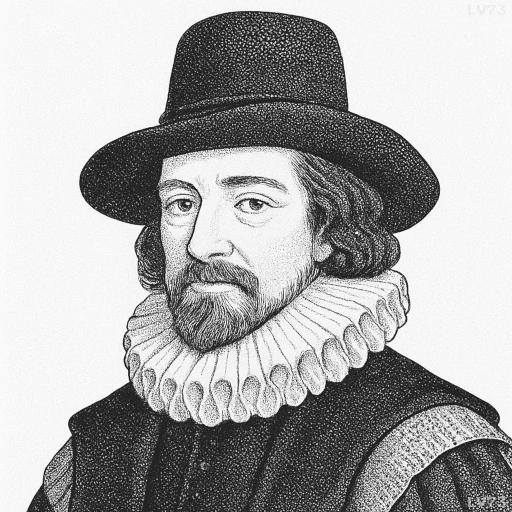“God’s first creature, which was light.”

- January 22, 1561 – April 9, 1626
- Born in England
- Philosopher, theologian, jurist, politician, aristocrat
table of contents
Quote
“God’s first creature, which was light.”
Explanation
This quote refers to the biblical account of creation in the book of Genesis, where God’s first act was the creation of light. By stating that light was God’s “first creature,” Francis Bacon emphasizes the primacy and importance of light in the creation of the world. Light symbolizes knowledge, clarity, and understanding, which are central themes in Bacon’s own philosophical work. Bacon, a Renaissance thinker and the father of the scientific method, was deeply interested in the ways that reason and observation could illuminate the mysteries of the natural world. For Bacon, this metaphorical connection between light and knowledge suggests that the pursuit of truth and wisdom is divinely ordained and foundational to human progress.
Bacon’s reference to light also ties into the broader intellectual context of his time, when the scientific revolution was gaining momentum. The discovery and application of natural laws were seen as a way to better understand God’s creation, with light serving as a key symbol of illumination and enlightenment. Bacon’s scientific approach to understanding the world was rooted in a belief that the study of nature could lead to a deeper understanding of the divine order.
In modern times, the symbolism of light continues to hold profound significance, especially in the realms of science, philosophy, and spirituality. The phrase “the light of knowledge” is often used to describe the pursuit of understanding, whether in the scientific method, ethical reasoning, or spiritual enlightenment. For example, the development of technologies such as artificial intelligence or the advancement of medical research can be seen as efforts to bring more light into previously dark or unknown areas. Just as Bacon viewed light as a symbol of knowledge and discovery, today’s pursuit of innovation and truth continues to reflect the deep connection between light and illumination in both intellectual and spiritual contexts.
Would you like to share your impressions or related stories about this quote in the comments section?
